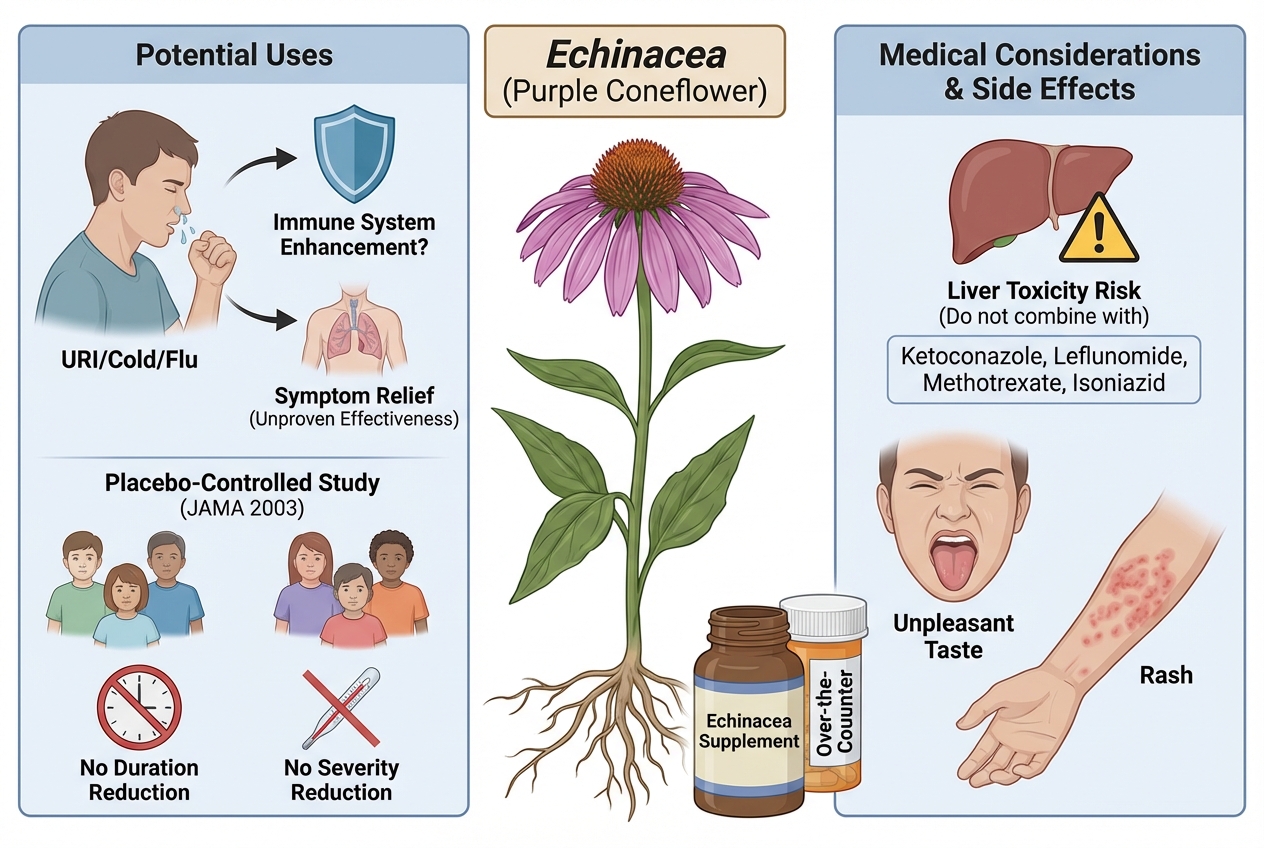
Echinacea:This herb is often touted for its ability to enhance the immune system and combat infections. It is commonly utilized to alleviate symptoms associated with upper respiratory tract infections (URIs), such as colds and the flu. Echinacea is extracted from the purple coneflower, Echinacea purpurea, a hardy perennial native to North America, recognized for its large purple blossoms and prominent central cone.Despite its popularity, the effectiveness of echinacea in treating URIs remains unproven. A randomized, placebo-controlled study indicated that echinacea did not reduce the duration or severity of colds in children (JAMA 2003;290:2824-2830).The most frequently reported side effect of echinacea is its unpleasant taste. Additionally, echinacea may lead to liver toxicity and should not be used alongside other liver-impacting medications, such as ketoconazole, leflunomide (Arava), methotrexate (Rheumatrex), and isoniazid (Inh/Nizoral). Another possible side effect is the development of a rash.Echinacea is available for purchase over the counter without needing a prescription and is among the most widely used alternative therapies.




